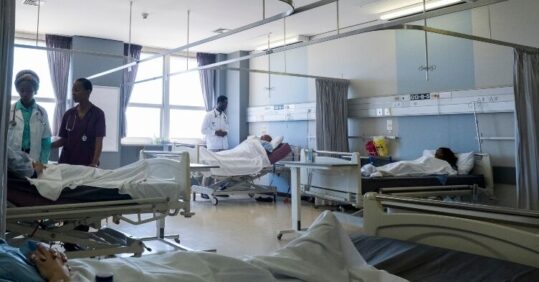Ten-fold increase in nurses from countries where recruitment banned

There has been a ten-fold increase in nurses joining the UK workforce from countries the UK Government says should not be recruited from, analysis shows.
The RCN analysis of NMC data, published today, found joiners to the UK nursing workforce this year includes recruits from 14 countries on a UK Government ‘red list’ of 47 most short-staffed countries.
Overall, the number of recruits from red list countries grew from 417 in 2019 to 4,272 in one year to 2022, it found. Nigeria has accounted for the most joiners in the last year at 3,010 growing from 276 in 2019, followed by Ghana at 843, Nepal at 210 and Pakistan with 112.
UK recruiters are not permitted to actively recruit – meaning conduct a recruitment campaign – from red list countries unless both governments agree to managed recruitment.
Related Article: New digital support for community nurses in 10-year plan
The RCN is calling on governments across the UK to invest in expanding the domestic workforce and to introduce bilateral agreements – with the involvement of national nursing associations – to ensure all international recruitment is mutually beneficial for these countries.
But it stressed that it recognises ‘the contribution made by professionals from around the world to our health and care services and defends the rights of individuals to work in the UK’.
RCN chief executive Pat Cullen said ministers are ‘overly reliant on nurses from countries with critical workforce shortages’ alongside a ‘deeply concerning’ lack of investment in domestic staff.
She added: ‘Our health and care workforce is proudly diverse. International recruitment must be ethical, beyond reproach and come at the same time as increased investment in education and domestic professionals.’
These increases have led to concerns that the UK is becoming ‘heavily’ reliant upon countries with ‘critical’ workforce shortages to fill around 39,000 current nursing vacancies across health and care services in the UK, the RCN said.
Related Article: Nurse had to ‘freeze’ PPE during pandemic to re-use in care home, Covid inquiry hears
A Department of Health and Social Care (DHSC) spokesperson said: ‘We have more nurses working in the NHS than ever before and are well over halfway towards the government’s target of recruiting 50,000 extra nurses by 2024.
‘Internationally trained staff have been part of the NHS since its inception in 1948 and continue to play a vital role, while also benefiting enormously from the opportunity to work in the NHS – both in terms of professional development and economically.
‘We do not actively recruit from any of these countries, and we have committed £20m towards programmes to strengthen the health workforce in a number of developing countries to support them to train, employ and retain a sufficient and skilled health workforce.’
WHO guidance balances individuals’ rights to migrate and pursue their careers overseas with their government’s desire to protect their valued workforce. Therefore individuals from these 47 countries are able to apply for vacancies in the UK independently, the DHSC also pointed out, and added that it is ‘working hard to increase our homegrown supply of health and social care staff’.
The 14 red list countries the RCN found the UK is recruiting from are: Afghanistan, Bangladesh, Cameroon, Ethiopia, Gambia, Ghana, Lesotho, Malawi, Mauritius, Nepal, Niger, Nigeria, Pakistan, Papua New Guinea, Sierra Leone, Tanzania and Uganda.
Related Article: Tell us what practice nursing means to you and potentially win £1,000

See how our symptom tool can help you make better sense of patient presentations
Click here to search a symptom




